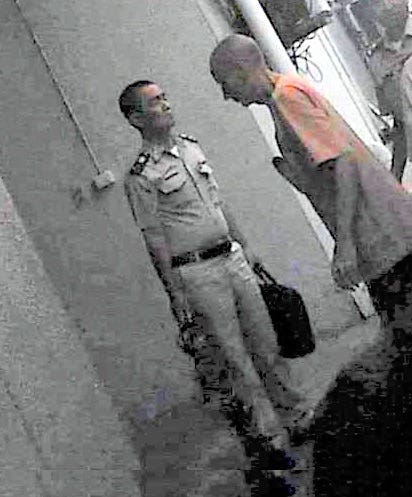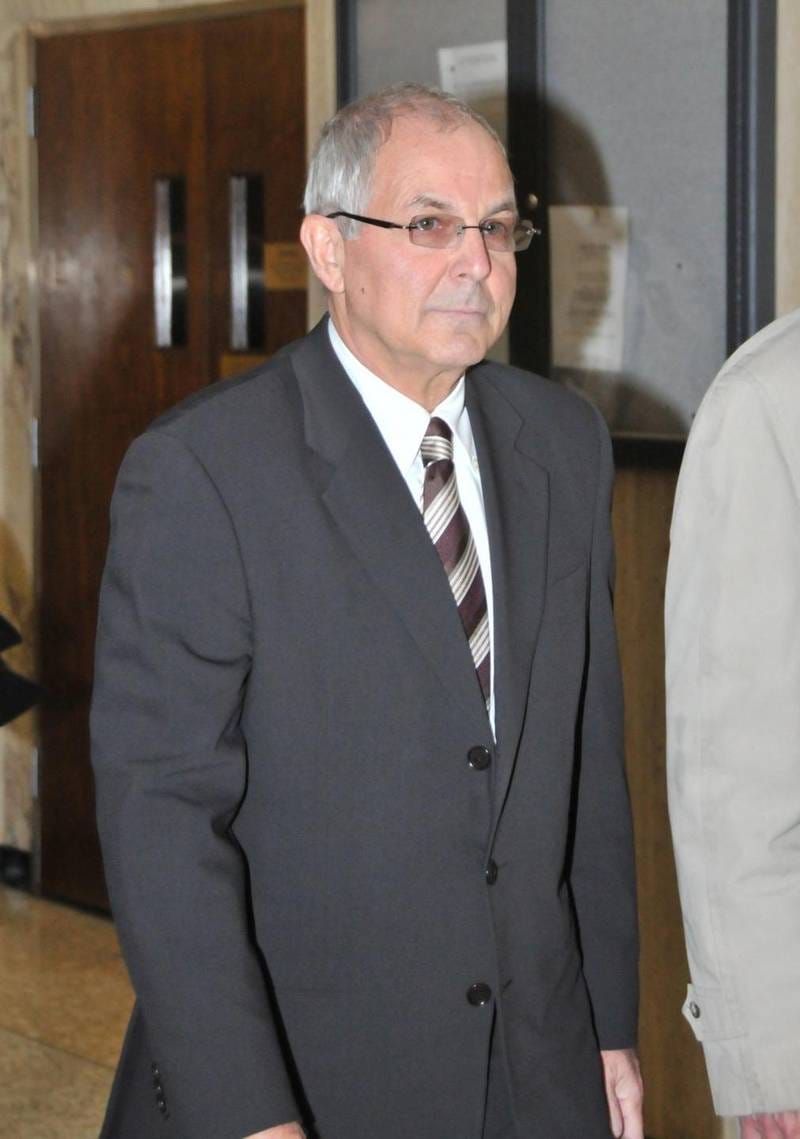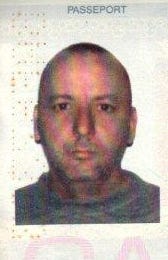Anthony Weiner: "I'm no CHOMO."
The People You Meet in Prison: I Met Pharma Bro, Weiner, Madoff's Brother & Silk Road's Variety Jones
This story was first published in the Frank Report (www.frankreport.com). Richard Luthmann is a contributor. You can read it here:
The People You Meet in Prison
By Richard Luthmann
I have written about my experiences in federal prison. Today I will tell you about four high-profile prisoners I met during my stay.
Martin Shkreli
I met Martin Shkreli when I was a pretrial detainee at the MDC. We were also both in FCI Allenwood Low in White Deer, Pennsylvania.
Shkreli was a hedge fund manager and CEO of pharmaceutical firms.
He won the name Pharma Bro after Turing obtained the manufacturing license for the antiparasitic drug Daraprim and raised its price by 5,455% (from $13.50 to $750 per pill).
In 2017, Shkreli was convicted in federal court on two counts of securities fraud and one count of conspiring to commit securities fraud. Though the charges were unrelated to the Daraprim price gouging, many believed the Feds targeted him, and found the crime elsewhere.
He was sentenced to seven years in federal prison and $7.4 million in fines.
As far as prison reputations went, Shkreli’s was one of the best. He might be called Prison Bro. No one had a bad word to say about him at MDC. Martin did a lot to cultivate that. He was known for having tons of self-help books sent in for prisoners on his unit. Shkreli’s unit was probably the best read in the building. The inmates had the added benefit that when they were done with the books, they had a supply of rolling papers for their K-2.
Shkreli seemed like a nice guy. There was a general feeling among inmates that he was railroaded into prison for political reasons and made an example.
Anthony Weiner
In the Federal Medical Center in Devens, Massachusetts, I met the woefully misnamed (or woefully but aptly named) Anthony David Weiner.
Weiner served as the U.S. representative for New York's 9th congressional district from 1999 until 2011. A member of the Democratic Party, he resigned from Congress after the public learned he sent suggestive photos of himself to six different women.
Weiner ultimately switched from women to a girl. In 2017, he pleaded guilty to transferring obscene material to a minor and was sentenced to 21 months in prison. He was also required to register permanently as a sex offender.
He began his sentence in 2017 and was released in 2019.
In prison, Weiner was weird and funny. He would try to hold court in the prison library and show everybody how smart he was. Nobody was buying it.
Now that he is out, he's on the radio in New York. AM 770, owned by billionaire John Catsimatidis, is one of the more conservative radio networks.
Weiner appears with Guardian Angels founder Curtis Sliwa, who I know well. Sliwa was chairman of the now-defunct New York State Reform Party when I was law chairman of the party in 2016-2017.
Sliwa's show is good. Weiner is the token liberal they trot out to use as a punching bag. Weiner is in the perfect spot for himself.
In prison, Weiner tried to explain that he’s not a “CHOMO” (prison slang for sex offender - literally CHild MOleseter) to anyone who would listen. Most prisoners wouldn't listen.
As he told it, some girl/woman kept texting him, pushing him to see all. And poor man, all he did was “show her the goods” she craved.
He seemed addicted to texting and destroying his career.
In 2011, Weiner used his Twitter account to send a link to a woman following him on Twitter. The link contained a sexually explicit photograph of himself. Weiner was then married to Huma Abedin.
He denied he posted the image. Then held a press conference, admitting he "exchanged messages and photos of an explicit nature with six women" and apologized. After someone leaked his photo on Twitter, Weiner resigned from Congress.
In 2013, Weiner returned to politics to run in the New York City mayoral race. He also returned to sending photos.
Sydney Leathers, 22, an Indiana woman, wrote him about her disapproval of his extramarital behavior. Weiner sent her photos under the alias "Carlos Danger."
On August 28, 2016, the New York Post reported Weiner sexted another woman, including sending a picture while lying in bed with his young son.
In 2016, Weiner sexted a 15-year-old girl from North Carolina. A news report prompted a criminal investigation. Weiner's laptop was seized.
In 2017, Weiner pleaded guilty to a single charge of transferring obscene material to a minor.
I wonder if he has learned his lesson or if he is still texting someone right now, maybe while you are reading this.
Madoff Brother
At the Brooklyn MDC, I met Bernie Madoff’s brother, Peter B. Madoff. He went down for ten years for the Madoff theft.
Peter was at the MDC for about a month, in transit from Otisville to a prison camp in Miami.
I used to sit with Madoff at the “Jewish Table” on our seventh-floor unit. Though I’m not a Jew, my business partner in my “jailhouse law firm” and my collection agent, Rus, the Russian Mobster from Brighton Beach, was.
It was better for business to sit at the Jewish table. Many prisoners thought I was Jewish and thus a better lawyer, so I could charge more.
Peter Madoff worked with his brother Bernie for more than 40 years and ran daily operations for 20.
Peter sometimes signed weeks of compliance reports in one sitting, changing pens and ink colors to make it appear he had signed them at various times. He admitted hiding millions of dollars from the IRS to avoid taxes. A forfeiture order required Peter to surrender his assets to the government, including cash, homes, cars, and a Rolex watch.
When I met him in 2018, he was still sore about the Bankruptcy Trustee auctioning everything he owned. “That little prick even auctioned off my underwear,” he said.
On December 20, 2012, he was sentenced to 10 years in prison for his involvement in the Ponzi scheme. He was released from prison on August 13, 2020.
At MDC, Peter told me several stories about what happened to him, including how he got around SEC regulators.
Peter said when the regulators were at Madoff offices, they sat them in a large, comfortable conference room down the hall from the “library.” Peter told regulators they had a library for all the records the SEC needed for audits.
They did have a library, but the so-called compliance materials were actually in the now-infamous room on the 17th floor, where the people who knew the whole thing was a fraud, created prospectuses, brochures, or whatever was needed, with all the specs to make it look legal.
Peter’s job was to wine, dine, schmooze, and distract the SEC people, ensuring they were happy while doing their audits. They would ask their gracious host, Peter, for anything they needed, materials, research, or figures.
Peter told a story of how SEC regulators once asked him for detailed research on a matter. He called down to one of the Madoff cousins on the 17th floor and said in the presence of the SEC regulators, “Yeah, I need this research on X, Y, and Z. I’ll be down in a little bit to pick it up. Just pull it out of the library.”
So Peter was upstairs getting the SEC guys coffee and bullshitting with them. He does this for 20-30 minutes. After that, he says, “You know, I wonder where that research is. Let me go downstairs and see where it is.”
He gets downstairs, and they’re in the middle of putting it together. They get the packet together, and Peter looks at it and says, “This is no fucking good. This is terrible. I can’t bring this upstairs. It looks too new, like we just made it.” Which they had.
So they took the packet and roughed it up to make it look aged, used, and worn. They put a little coffee on the edge and slid it up and down the table to try to wrinkle some pages.
Then they handed it back to him, and Peter said, “Okay, this is good. This will work.”
Peter brings the binder upstairs to the SEC guys and says, “Yeah, we found it. Sorry it took so long. Do you guys need anything else?”
The auditors responded, “No, we’ll take a look.” They looked at it for about ten or fifteen minutes, then handed it back to Peter, saying, “Great. Everything is where it should be.”
Frankly, Peter had a manner of telling stories that provoked laughter - including from me.
Maybe it was funnier in prison than on the outside. In prison, laughter and irony are always needed to raise depressed spirits. I admit I laughed at some of his stories. They were only funny when you forget they are real stories, and real people were hurt.
Through their deceit, the Madoffs hurt many people. They stole the life savings of people who trusted them. They conned government representatives assigned to protect the public, which isn't funny at all.
Silk Road #2 or Was He #1?
Another character I met at the MDC was the number one associate of Ross Ulbricht with The Silk Road.
I was in MDC for over a year with Roger Thomas Clark, AKA “Variety Jones” or “Mongoose.” He’s Canadian.
Clark was alleged to be the senior adviser to Ulbricht, owner, and operator of the “Silk Road,” an online marketplace for illegal drugs, hacking services, and other criminal activity.
Silk Road allegedly was used by thousands of drug dealers and other unlawful vendors to distribute illegal drugs and illicit goods and services to over 100,000 buyers, and launder hundreds of millions of dollars derived from those transactions.
Silk Road included a Bitcoin-based payment system that concealed the identities and locations of users transmitting and receiving funds.
Clark, who I met, allegedly advised Ulbricht on Silk Road’s operations, including how to maximize profits and use threats of violence to thwart law enforcement. He hired and managed a staff of computer programmers to develop Silk Road’s technical infrastructure.
Clark went by the online nicknames “Variety Jones,” “VJ,” “Cimon,” and “Plural of Mongoose.”
Together, these two created the most sophisticated, extensive criminal marketplace on the Internet at the time. Silk Road operated on “The Onion Router,” or “Tor” network, a network of computers on the Internet, distributed around the world, designed to conceal the addresses of the computers on the network and the identities of the network’s users.
In 2013, the FBI arrested Ulbricht.
In 2015, he was convicted of engaging in a continuing criminal enterprise, distributing narcotics, distributing narcotics by the internet, conspiracy to distribute narcotics, conspiracy to commit money laundering, conspiracy to traffic fraudulent identity documents, and conspiracy to commit computer hacking.
He was sentenced to life in prison without parole.
Some who followed the Silk Road case believe the Feds cheated, and railroaded Ulbricht, faking fraud and murder charges, and tampered with evidence.
At the trial, the Feds never spoke about the website admin guys. That's because the FBI took over as admin of The Silk Road website and allegedly stole money.
During the trial, Ulbricht described Clark as his "real mentor," and Clark emerged as a behind-the-scenes puppet master.
Clark was arrested in Thailand in 2015, and extradited to the United States in 2018 and charged with narcotics trafficking conspiracy; narcotics trafficking; distributing narcotics by the internet; conspiracy to commit, aid, and abet, a computer hacking conspiracy; conspiracy to traffic in fraudulent identification documents; and money laundering conspiracy.
I spent about a year with Clark. He claimed dirty FBI agents hacked the website. I guess if you’re an FBI agent, you may believe that to enforce the law and stop bad guys, you can break the law - or you are above the law.
Clark said the FBI hacked into the Silk Road website's servers in Reykjavik, Iceland. After observing the activities of the website, the Feds told the Reykjavik police there was suspected criminal activity in their jurisdiction, and told them to seize the servers.
The Reykjavik police raided the server facility, seized the servers, and delivered them to US authorities.
There’s no Fourth Amendment in Reykjavik. There is no Fourth Amendment in a foreign country for a non-US citizen.
The Reykjavik police provided the servers on a "silver platter" based on an information-sharing treaty or agreement with the US, Interpol, and others.
Roger had no standing to contest the seizure.
The Reykjavik police dropped the evidence off to the Feds based on the “silver platter doctrine,” which applies to the international activity of non-US citizens. There used to be a silver platter doctrine in the United States. It allowed federal prosecutors to use evidence illegally gathered by state police. This was abused by federal and state authorities or two different state authorities and violated citizens' rights against unlawful search and seizure.
In Elkins v. US, the US Supreme Court overturned the “silver platter doctrine,” which violated the Fourth Amendment to the US Constitution.
There is no silver platter doctrine in US criminal law, except where a non-US citizen has property seized outside the US border - as was the case with the Silk Road.
The elimination of the silver platter doctrine was not extended to international activities when the defendant is not a US citizen.
In Roger’s case, any evidence the Feds obtained was fair game.
In United States v. Verdugo-Urquidez, the United States Supreme Court stated that Fourth Amendment protections do not apply to searches and seizures by US agents of property owned by a nonresident alien in a foreign country.

The silver platter doctrine was a substantial legal issue in Roger’s case.
When we were at MDC, I investigated his claims and did some legal research for him.
He told me once, “You know, Rich, if we can find a way around this, I have more money than anybody you’ll probably ever meet in your life. I’m never going to see it. I’m probably going to prison for the rest of my life. But if you find a way to get me out here, I will take care of you.”
I declined his offer.
“Roger," I said, "the second you sent me even one dollar of Bitcoin, that would be a very, very bad problem for me and everyone around me. The Feds would be on that in a second.”
Still, Roger was charming, and we got along well.
Roger, Phil Kenner (a former hockey player and investment advisor who I believe got railroaded), myself, and a couple of other guys played Scrabble daily.
Roger had great stories. He told a funny story about divorcing his wife, which he comically attributed to her "spoiler" of the ending of Forrest Gump before he had a chance to see it, while they were on their way home from a camping trip.
Roger used to say his biggest claim to fame was that he once "banged" Joan Jett. But the way Roger told it, it sounded more like Jett "banged" him.
I sometimes considered the appropriateness of the life sentence for Ulbricht. I know this may be an unpopular view, but I don’t think Ulbricht fully knew that what he was doing was wrong.
They were drug dealing in a new way with technology, the mail, and everything else. But I think Ross saw himself more like a libertarian advocate. He was trying to do something philosophical, perhaps more than anything else. Somebody like the “white knight” of libertarianism who would end the drug war, and the terrible cost it’s had on so many populations in this country.
On the other hand, I believe Roger Clark knew from the start. He even said to Ross, ‘listen, dude, we’re drug dealers; we’re just doing it on the web.’
***
Richard Luthmann is a former attorney and former federal prisoner. He discussed many of these issues with Peter Mingils on Building Fortunes Radio, featuring Scott Johnson .
Tex Scott Johnson
Listen to Johnson exposing the Amway Tool Scam.
About the Author
Richard Luthmann is a writer, commentator, satirist, and investigative journalist with degrees from Columbia University and the University of Miami. Once a fixture in New York City and State politics, Luthmann is a recovering attorney who lives in Southwest Florida and a proud member of the National Writers Union.
For Article Ideas, Tips, or Help: richard.luthmann@protonmail.com or call 239-287-6352.
This is Satire? is a reader-supported publication. To receive new posts and support my work, consider becoming a free or paid subscriber.





![Curtis Sliwa [l] and Anthony Weiner [r] Curtis Sliwa [l] and Anthony Weiner [r]](https://substackcdn.com/image/fetch/$s_!EEbV!,w_1456,c_limit,f_auto,q_auto:good,fl_progressive:steep/https%3A%2F%2Fsubstack-post-media.s3.amazonaws.com%2Fpublic%2Fimages%2Fe08a28da-8166-4d48-a99a-8ec7161b1d04_1200x799.webp)











